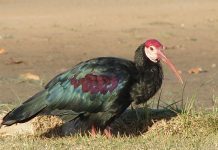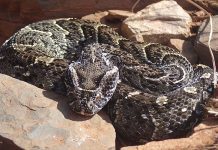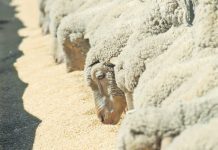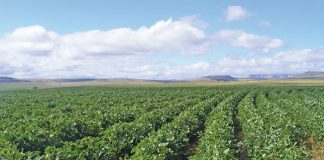When it comes to predator management, South African agricultural and environmental authorities look more like the farmer’s foe than friend in comparison with the US’s wildlife service, writes Roelof Bezuidenhout.
Most of the tried-and- tested methods and strategic combinations of these methods used by South African livestock and game farmers to control caracal and black-backed jackal are also used in the US, where bobcats and coyotes are the main problems. But the big difference between the two countries is that in the US, predation management is supported by the various states, says Prof HO de Waal of Free State University’s African Large Predator Research Unit. He was part of the Predator Management Forum (PMF) study tour that recently visited several US states, including Texas and Utah.
Coordinated predation management in SA
"We still have time, but not much, to follow the US and get organised," De Waal says. "We urgently need to persuade our authorities that it’s essential to develop and implement a balanced and coordinated predation management system here."Current efforts are hopelessly fragmented, even though we have the necessary resources and expertise to tackle the predation problem, which many farmers describe as out of control."Prof De Waal also urges roleplayers to work together, to use positive communication, and to move away from the defensive mode in which the livestock and game industries are caught up in. "Sentimentalists thrive on the negative portrayal of farmers protecting their stock against carnivores," he notes.
Trust between roleplayers in US
Prof De Waal points out that in the US, federal legislation allows producers to control predators to safeguard their flocks. When necessary, they call in the help of specialist trappers employed by the official wildlife service. "With everything possible being done to limit friction between roleplayers, there’s a great deal of trust between farmers and the wildlife service there," he says. The slogan held up by the US agriculture department’s Animal and Plant Health Inspection Services is "Safeguarding American Agriculture," he says. "They have a mandate to provide a service and have no regulatory function – the law enforcement is done by the US Fish and Wildlife Services, a separate federal department," he explains.
While the wildlife service is under federal control, their activities and even appointment of staff are funded corporately, so they get money from the state, conservation bodies and producer organisations. Commodity organisations also play a big role lobbying to ensure enough funding from the state to maintain and expand predator management programmes.
Sharing responsibilities
Petrus de Wet, chairperson of the PMF and president of the National Wool Growers Association, says the PMF, which represents livestock and game farmers, has to convince the local agriculture and environmental affairs departments to allocate a bigger budget, implement workable and practical policy and legislation, and support and conduct the necessary training to combat predators. "We must share responsibilities – alone we’re not going to win this battle of feeding the nation. We can learn much from the US where their wildlife service is the farmer’s friend, not enemy. Their wildlife service has a vision – to improve the coexistence of people and wildlife – and a mission to provide federal leadership in managing conflict with wildlife."
Dealing with experienced advisors
"They also have a very clear pecking order as to who they listen to," says Petrus. "They only take advice from qualified, knowledgeable people with the necessary background and with a real interest in predator management issues. They have collaborators, partners and stakeholders and they list them in their policy documents. The rest they don’t take seriously." In South Africa farmers are extremely frustrated to hear and read about theoretical solutions to problems based on limited research and isolated success stories from people with no practical experience in farming with animals under extensive conditions.
That these theorists seemingly have the ear of the authorities makes things even worse.But the good news is that a newly established research centre at Nelson Mandela Metropolitan University plans to run a research programme aimed at separating the truth from the myths in this emotional debate.Contact Prof HO de Waal on 051 401 2210
or e-mail at [email protected]. |fw












